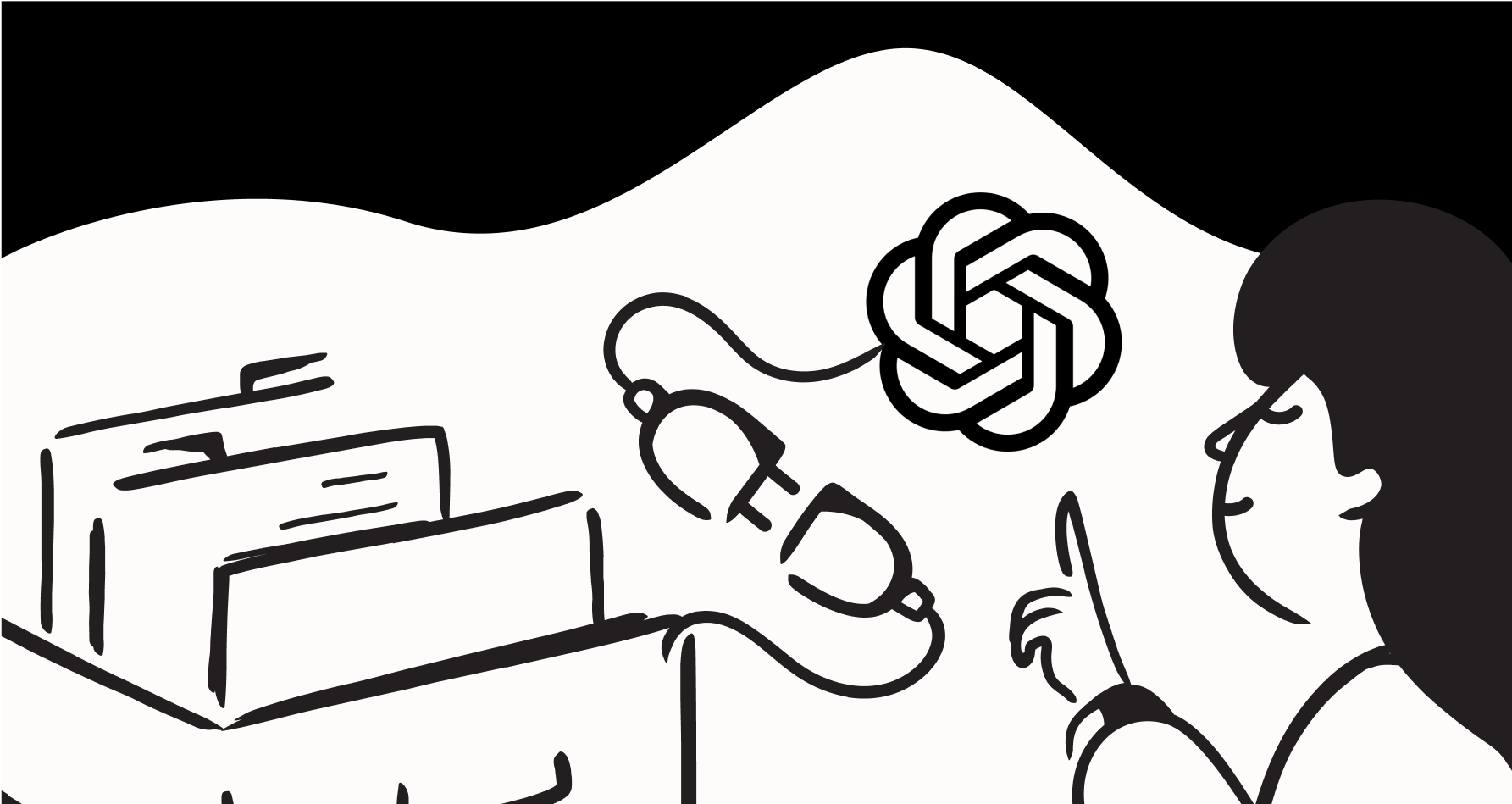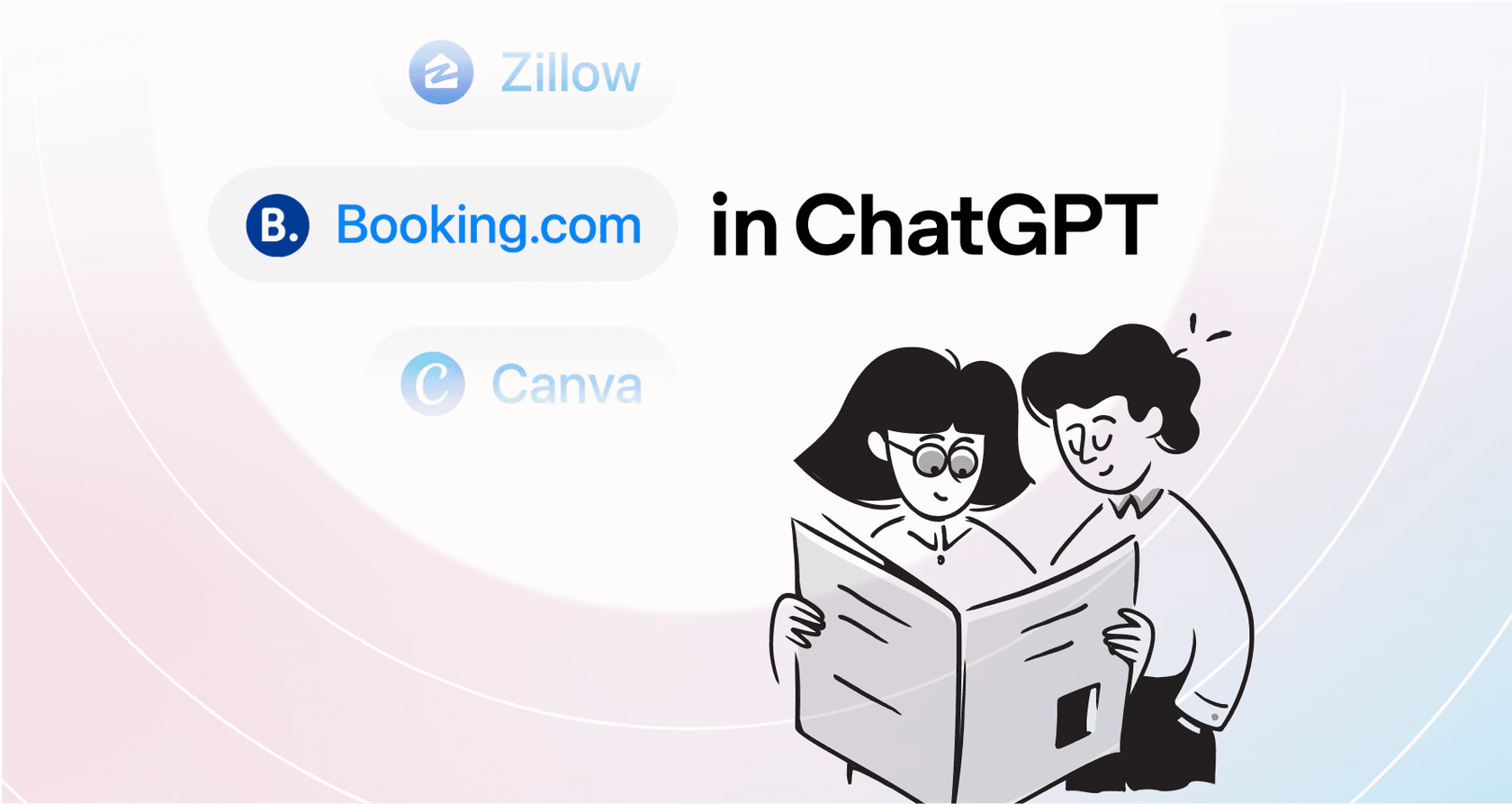
The world has gone all-in on AI, and trying to pick the right platform can feel like navigating a maze. It’s a crowded space. Should you go for a massive, general model that needs a team of developers to get working? Or a specialized tool that can solve a specific business problem right now? It's a tough call.
That's why we put this list together. We're going to walk through 7 of the top artificial intelligence company platforms to help you cut through the noise. Each one is a leader in its own right, and we'll break down what that actually means for you and your business. We'll cover what they do, how we picked them, and how they stack up, so you can make a choice you feel good about.
What is an Artificial Intelligence Company?
Simply put, an artificial intelligence company builds and sells AI-powered software or services to solve problems, automate tasks, or find useful insights in data.
Over the last few years, the field has exploded, with different companies tackling different parts of the puzzle. You can generally sort them into three buckets:
- Foundational Model Builders: These are the heavy hitters like OpenAI and Anthropic. They create the huge large language models (LLMs) that act as the engine for many other AI tools. They build the motor, but it's usually up to you to build the car around it.
- Infrastructure Providers: Think of companies like NVIDIA making the chips or Scale AI handling data labeling. They provide the essential building blocks, the hardware and the high-quality data, needed to get powerful AI systems off the ground.
- Application-Specific Platforms: These companies use AI to solve very specific business needs, like customer service, legal research, or sales. They offer a finished product designed to work out of the box, which is often the most practical option for businesses that need a solution today.
Most of these companies use a mix of Machine Learning (ML), Natural Language Processing ( NLP), and Generative AI. The trick is finding one whose tech and approach actually line up with what you need to get done.
How we chose the best Artificial Intelligence Company platforms
We looked at dozens of platforms to build this list, but we kept coming back to one thing: practical value. Here are the four main criteria we used to judge them:
- Ease of Implementation: How fast can someone who isn't a developer get started and see results? We looked for platforms you could set up yourself, preferably in an afternoon.
- Specialization & Use Case: How well does the platform solve a real, high-value business problem? General tools are cool, but specialized platforms are often faster and more effective.
- Customization and Control: Can you actually tweak the AI's behavior and knowledge to match your company's way of doing things? We favored platforms that give you real control.
- Transparent Pricing: Is the pricing easy to understand? We gave top marks to companies with straightforward subscription plans that don't have complicated, usage-based fees waiting to bite you.
Comparison of the top Artificial Intelligence Company platforms for 2025
Here’s a quick glance at how our top 7 picks compare.
| Feature | eesel AI | OpenAI | Scale AI | C3 AI | Palantir | Glean | Harvey |
|---|---|---|---|---|---|---|---|
| Primary Use Case | Customer & Internal Support Automation | Foundational Models (GPT) | Data Labeling & Annotation | Enterprise AI Applications | Data Analytics & Security | Enterprise Search | Legal & Professional Services |
| Ideal User | Support, IT, & Ops Teams | Developers & Researchers | AI/ML Teams | Large Enterprises | Government & Finance | Internal Knowledge Teams | Law Firms & Tax Professionals |
| Implementation Speed | Minutes (Self-Serve) | Hours (API Integration) | Days to Weeks | Months | Months | Weeks | Weeks to Months |
| Pricing Model | Flat-rate subscription | Usage-based (per token) | Custom contracts | Custom contracts | Custom contracts | Per user/month | Custom contracts |
The 7 best Artificial Intelligence Company platforms in 2025
Every company on this list is a leader in its space, whether it’s automating a help desk or building the models that will power the next big thing in AI. Let's dig into what makes each one stand out.
1. eesel AI
eesel AI is an AI platform built to handle customer and internal support questions without making you switch tools. It connects directly to help desks like Zendesk and Freshdesk, and learns from all your company knowledge, including Confluence, past tickets, and Google Docs. It uses that knowledge to resolve customer issues, help your agents find answers, and run internal Q&A bots right inside Slack.
Pros:
- Go live in minutes: The setup is completely self-serve with one-click integrations. You can honestly be up and running in less than an hour without talking to a salesperson.
- Unifies all your knowledge: It doesn’t just skim your help center. It connects to old support tickets, internal wikis, and other docs to give complete, accurate answers based on how your business actually operates.
- Risk-free simulation: Its simulation mode is incredibly useful. You can test your AI on thousands of your past tickets to see exactly how it would have performed and calculate your ROI before it ever talks to a real customer.
- Predictable pricing: The pricing for eesel AI is a simple flat rate. You pay a monthly or annual fee without worrying about per-resolution charges, so your bill won't suddenly jump after a busy month.
Cons:
- It's laser-focused on support and knowledge automation, so it's not the right tool if you're a developer looking to build something from scratch.
- While the basic setup is easy, getting the most out of advanced features might mean you need to be a little tech-savvy or ask their team for some help.
Pricing: Plans start at $239/month (with annual billing) for the Team plan, which gives you up to 3 bots and 1,000 AI interactions per month.
Why it's on the list: eesel AI takes on a huge, universal business problem, support, with a platform that’s incredibly simple to set up, highly customizable, and has transparent pricing. It makes high-quality AI automation accessible to teams of any size.
2. OpenAI
OpenAI is the company behind the models that kicked off the current AI craze, like GPT-4. They offer powerful APIs that let developers build their own apps on top of the best language, image, and code-generation models available.
Pros:
- You get API access to some of the most powerful and flexible AI models in the world.
- There's a huge community of developers and tons of documentation to help you get started.
- They're always pushing the envelope with AI research, so you get access to the latest and greatest.
Cons:
- You need developers and serious technical skills to turn their API into a useful business application. It's just the raw ingredient, not the finished meal.
- The pricing is based on usage (per token), which can get unpredictable and very expensive as your app grows.
- It's a box of powerful tools, not a solution for a specific business problem.
Pricing: Pay-as-you-go, based on the model you use and how many "tokens" (pieces of words) you process.
Why it's on the list: As the creator of ChatGPT, OpenAI is the engine behind a massive part of the AI world. It's still the number one choice for companies that need raw access to top-tier models to build something completely custom.
3. Scale AI
Every artificial intelligence company runs on data, and Scale AI provides the fuel: high-quality training data. Their platform uses a global workforce to help companies label and sort huge datasets of text, images, and audio. This is a must-do step for training any kind of reliable machine learning model.
Pros:
- They are the clear leader in providing high-quality, human-checked data for training AI.
- Their platform can handle a huge variety of data types and complex labeling jobs.
- They're the go-to for nearly every major AI lab and big company that's serious about building its own models.
Cons:
- This is a service for companies building their own AI from the ground up, not for those who want to buy a finished product.
- The pricing is aimed at large enterprises and involves custom contracts and a big budget.
Pricing: Custom enterprise plans.
Why it's on the list: You can't do any serious AI work without clean, accurately labeled data. Scale AI is the best in the business at providing this service, making them a key player in the whole AI supply chain.
4. C3 AI
C3 AI provides a platform and ready-to-go AI applications for massive companies in industries like manufacturing, energy, and finance. Their tools are built to handle incredibly complex jobs like predicting when machinery will fail, optimizing supply chains, and detecting fraud on a huge scale.
Pros:
- They offer complete solutions for specific, high-stakes industrial and financial problems.
- They have a ton of industry-specific knowledge and a long history of working with some of the world's biggest companies.
- Their platform also lets big companies build their own custom AI apps if they have unique needs.
Cons:
- Implementation times are notoriously long, often taking many months just to get one application running.
- This is a platform built for giant multinational corporations; it's not a fit for small businesses or even most enterprise teams.
- It requires a major upfront cost and ongoing professional help to keep it running.
Pricing: Custom enterprise licensing.
Why it's on the list: C3 AI is the choice for tackling complex, large-scale AI projects in established industries. They provide heavy-duty solutions for problems where a simpler tool just won't work.
5. Palantir
Palantir is known for its powerful data platforms, Gotham (for government agencies) and Foundry (for businesses). It helps organizations in sectors like defense and finance connect vast, messy datasets to find important insights and make high-stakes decisions.
Pros:
- They are experts at pulling together and analyzing complicated, sensitive data from hundreds of different places.
- They have a long, proven track record in government and enterprise settings where security is everything.
- Their new Artificial Intelligence Platform (AIP) brings the power of LLMs into their secure data environments.
Cons:
- The platform is incredibly expensive and usually requires a deep, long-term partnership instead of a simple software subscription.
- It's a very complex system that's not meant for the average business user; you need specialized analysts to run it.
Pricing: Custom enterprise and government contracts, often in the tens of millions of dollars.
Why it's on the list: For organizations that have the strictest data and security needs in the world, Palantir offers a powerful and secure way to find intelligence in the chaos.
6. Glean
Glean is basically a "Google for your company." It's an AI-powered search tool that helps employees find information scattered across all of a company's different apps. It understands what you're asking for and delivers relevant, personalized results in an instant.
Pros:
- It solves the very common and frustrating problem of information being stuck in different silos.
- It connects with a huge list of popular workplace apps right out of the box.
- The platform respects all existing data permissions, so employees only see the information they're allowed to see.
Cons:
- It’s only for internal search. It can't be used for anything customer-facing, like a help center.
- The pricing is typically per user, per month, which can get expensive for large companies.
Pricing: Custom per-user pricing.
Why it's on the list: Glean uses AI to fix a basic problem that almost every modern company faces: making its collective knowledge easy to find for the people who need it to do their jobs.
7. Harvey
Harvey is an AI platform built just for elite law firms, tax advisors, and financial services companies. It's been trained on a massive amount of legal and financial data to help professionals with things like analyzing contracts, doing due diligence, researching cases, and staying on top of regulations.
Pros:
- It's a highly specialized tool for complex, knowledge-heavy professional work.
- It helps lawyers and analysts work much faster and more accurately.
- It has serious backing from major players in both the legal industry and the tech world.
Cons:
- This is a very niche tool that's not really useful outside of the legal, tax, and professional services fields.
- It's generally only available to large, high-end firms.
Pricing: Custom enterprise contracts.
Why it's on the list: Harvey is a great example of how powerful vertical AI can be. By training its models on industry-specific data, it becomes an incredibly useful assistant for highly specialized professionals.
Listen to industry experts discuss which companies are leading the AI race and what it means for the future.
How to choose the right Artificial Intelligence Company for your business
Feeling a bit clearer on the options? Good. Here are a few practical tips to help you make a final call.
Start with the problem, not the tech
Don't just chase the trendiest name or the most powerful model. First, get crystal clear on the business problem you need to solve. Is it cutting down on support tickets? Helping your team find internal documents faster? Figure out the what before you worry about the how. The right tool for one job is almost always the wrong tool for another.
Be honest about your resources
Do you have a team of developers on standby, ready to build a custom app using an API? Or do you need something you can set up yourself this week? Your team's time and technical skills are a huge factor. This is where tools like eesel AI really stand out, since you don't need an engineering team to get going.
Run a pilot or trial
The best way to know if a platform works is to try it. Look for companies that offer free trials or, even better, a simulation mode. This lets you test the solution with your own data and see how it works before you sign a contract.
Demand clear pricing
Watch out for any artificial intelligence company that charges per ticket or uses a confusing, usage-based model that makes budgeting a nightmare. Find a partner with flat-rate, predictable pricing so you can scale up without your costs spiraling out of control.
Get started with an Artificial Intelligence Company today
The main takeaway here is that the "best" artificial intelligence company really comes down to what you're trying to accomplish. While giants like OpenAI are building the technology of tomorrow, specialized platforms like eesel AI are delivering real results today by solving specific business problems.
If your goal is to improve support for customers and employees, cut down response times, and bring all your company's scattered knowledge together, eesel AI is the fastest and safest way to do it.
You don't need a team of data scientists or a massive budget to get started with AI. Sign up for a free eesel AI account to see how quickly you can automate your support, or book a demo with our team to learn more.
Frequently asked questions
Not at all. It's best to start with the specific problem you need to solve. Many specialized platforms are designed for small to mid-sized teams and offer predictable, flat-rate pricing, which is a much safer starting point than a massive enterprise contract.
It completely depends on the platform. Foundational model providers like OpenAI require a team of developers to build anything useful. However, application-specific platforms like eesel AI are often self-serve and can be set up in minutes by non-technical users.
The most common mistake is focusing on the technology instead of the business problem. Chasing the most powerful model is less effective than finding a platform that solves a specific, high-value issue for your team, like automating customer support or improving internal search.
While tools like ChatGPT are powerful, they are general-purpose and not designed for specific business workflows out of the box. A dedicated platform will offer integrations, security, and customization features built to solve a particular business problem reliably and safely.
Look for companies that specialize in your vertical or have clear case studies from similar businesses. A platform like Harvey, for example, is powerful for law firms precisely because it’s trained on legal data. Specialization often leads to better and faster results.
It's incredibly important. A trial or simulation lets you test the platform with your own data and see the potential ROI before committing. This risk-free approach ensures the solution actually works for your specific use case.
Share this post

Article by
Kenneth Pangan
Writer and marketer for over ten years, Kenneth Pangan splits his time between history, politics, and art with plenty of interruptions from his dogs demanding attention.





